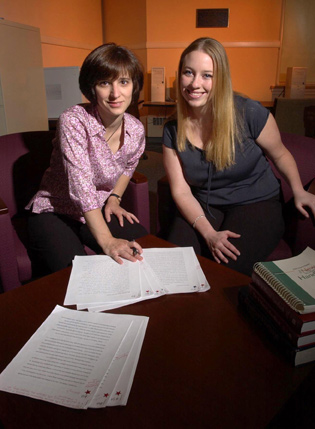Bianca Falbo, assistant professor of English at Lafayette, will speak on “Francis Andrew March and Lafayette’s Literary Culture, 1857-1906” at 4:10 p.m. Wednesday, Sept. 19, in Skillman Library.
This is the final talk in Lafayette’s College Archives Lecture Series for 2001, entitled “Finding a Purpose: Lafayette College and its Mission in the Nineteenth Century.”
Free and open to the public, the lectures, which commemorate the 175th anniversary of Lafayette’s chartering, are sponsored by the Friends of Skillman Library.
“In recent years, we have had a number of scholars using the college archives to research various aspects of the college’s history, and we are pleased to provide a forum for some of their findings,” says Diane W. Shaw, special collections librarian and College archivist.
Falbo’s talk is set in the context of the flourishing literary culture at Lafayette in the 19th century. The college had a student newspaper, two literary societies, literary magazines, and various prizes awarded for student writing about literature.
At the center of the activity was Francis Andrew March. As a member of the Lafayette faculty from 1855 to 1906, March pioneered the study of literary works in the English language. He instituted a program in English at Lafayette decades before the subject was widely established in colleges throughout the nation, achieving international fame for his proposal to teach English with the same attention to linguistic analysis then used in the study of Latin and Greek.
He was also the first professor to include plays by Shakespeare in his courses, establishing Lafayette as the American birthplace of Shakespearean studies.
Falbo is assistant director of Lafayette’s College Writing Program. She earned a Ph.D. from the University of Pittsburgh. Her specialties are composition theory and pedagogy, and 19th-century literature. She has published works on cultural identity and personal writing.

Lindsey Harkness ’03 researched how Lafayette’s student Writing Associates reflect on their own writing in an EXCEL Scholars project with Bianca Falbo, assistant professor of English.
